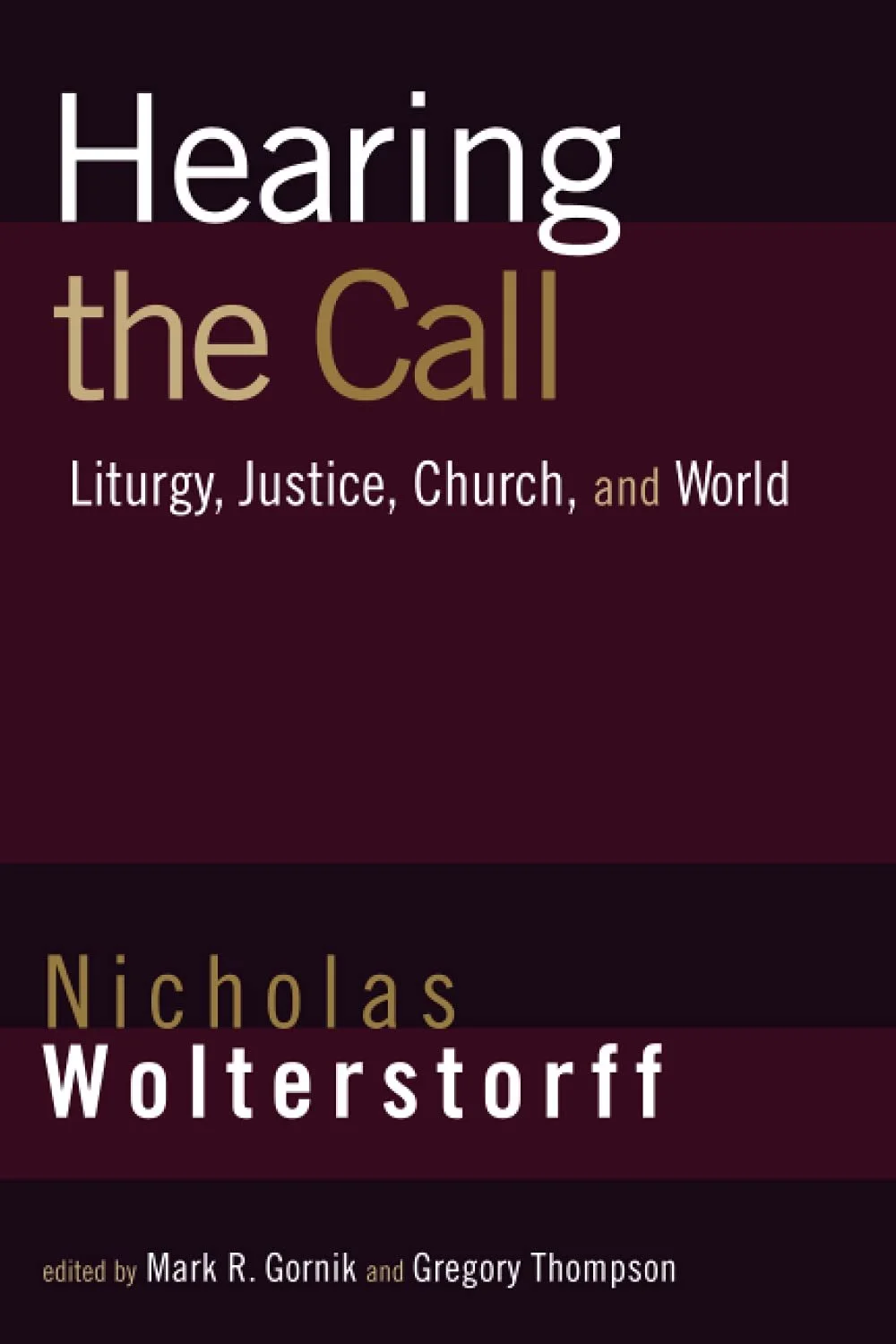Gathered and Dispersed
These days I’m slowly reading through a hefty collection of essays by Yale philosophy professor Nicholas Wolterstorff (more from him here, here, and here), published under the title, Hearing the Call: Liturgy, Justice, Church, and World (Eerdmans).
If you follow me on Twitter you’ve no doubt seen some scattered quotes I’ve shared. Here’s one that requires more than 140 characters, and more than a mere passing glance. In it he discusses the relationship between liturgy and justice, and how the two need not be at odds:
Often those concerned with issues of social justice say or suggest that the essence of the church is to be found in how it embodies itself in the world. Its essence will be revealed if it lives justly and charitably when dispersed. Such persons regularly treat liturgy as a more or less dispensable practice and regard concern with liturgy as a distraction and a danger. On the other side, those concerned with liturgy often say or suggest that the essence of the church is revealed in its gathering for the celebration of the liturgy. Such persons regularly treat the practice of justice as more or less dispensable and regard concern with issues of social justice as a distraction and a danger. Often they call this danger “horizontalism.” And then there are those who see the essence of the church in evangelism; they regard both liturgy and justice as more or less dispensable and view concern with them as distracting at best and dangerous at worst.
My thesis is that all such attitudes are aberrations. The church is to gather for the celebration of the liturgy, and when it is dispersed it is to practice and struggle for justice and to spread the word about its Lord. When one of these is thought to be closer to the essence of the church than the other, aberration has set in; and that aberration always shows itself in distortion of that very activity that was thought to reveal the essence (p. 40).
As Wolterstorff puts it, pitting liturgy against justice – or pitting justice against liturgy, or pitting evangelism against both – is an aberration. I wholeheartedly agree. Each of these cases represent a deviation from what is normal and right, from what God intends for the church. Those who bang the social justice drum in more conservative evangelical churches and those who emphasize liturgy, piety, or evangelism in more progressive congregations will likely feel the pressure to get in line with what really matters.
In all likelihood, those who experience this on either end of the spectrum will either begrudgingly get in line and become clones or they’ll leave for a church full of people just like them. Both are tragedies. Scripture, after all, teaches rather clearly that the church is one body with many members:
The eye cannot say to the hand, “I have no need of you,” nor again the head to the feet, “I have no need of you.” On the contrary, the parts of the body that seem to be weaker are indispensable, and on those parts of the body that we think less honorable we bestow the greater honor, and our unpresentable parts are treated with greater modesty, which our more presentable parts do not require. But God has so composed the body, giving greater honor to the part that lacked it, that there may be no division in the body, but that the members may have the same care for one another. If one member suffers, all suffer together; if one member is honored, all rejoice together.
If every Sunday morning you’re surrounded by people who think just like you, look just like you, and have the same gifts as you, you’re missing out on God’s beautiful design for the church, and so are a lot of other people.
I know churches need to figure out what it is they have in common, what holds them together as a congregation. It’s important to agree on the essentials, no denying that. But one of those essentials, it seems to me, is this: People with diverse gifts and diverse backgrounds belong together, where they can build each other up, where they can worship side-by-side, and then together be sent out to serve their neighbors in all kinds of ways in Jesus’ name.
